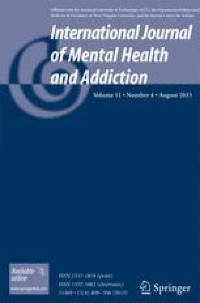
Attachment, Emotion Dysregulation, and Video Game Play: Testing the Mediating Role of Emotion Dysregulation in Gaming Disorder – International Journal of Mental Health and Addiction
Insecure attachment styles (anxious and avoidant) are significantly associated with the severity of gaming disorder (GD) symptoms. Research has also suggested that emotion dysregulation may be one mechanism by which insecure attachment styles lead to greater severity of GD symptoms. In this study, w…
- Tang, K. T. Y., Hodgins, D. C., & Schluter, M. G. (2022). Attachment, Emotion Dysregulation, and Video Game Play: Testing the Mediating Role of Emotion Dysregulation in Gaming Disorder. International Journal of Mental Health and Addiction. https://doi.org/10.1007/s11469-022-00913-y
不安型愛着スタイル(不安型と回避型)はゲーム性障害(GD)の症状の重症度と有意に関連している。また、不安な愛着スタイルがGD症状の重症化をもたらすメカニズムの1つとして、感情調節障害があることが示唆されている。本研究では、大学生を対象に、感情調節障害の媒介的役割の可能性を検証した。カナダのカルガリー大学の16歳から41歳の学部生287名を対象に、媒介モデルを検証した。参加者は、GDの重症度(Game Addiction Inventory for Adults)、愛着(Experiences in Close Relationships)、感情調節障害(Difficulties in Emotion Regulation Scale)の自己報告式尺度に回答した。仮説通り、不安な愛着が大きいほど、GD症状が強く、感情調節障害の重症度が高くなることが有意に示された。さらに、不安な愛着をコントロールした場合、感情調節障害はより大きなGD症状を予測した。重要なことは、情動調節障害は不安定な愛着とGDの関係を有意に媒介することであった。本研究の結果は、大学生の不安な愛着と過剰なゲームとの関係を感情調節障害が媒介する可能性を示唆している。これらの結果は、非問題行為への関与とGDの区別に情報を提供する可能性を持っている。
